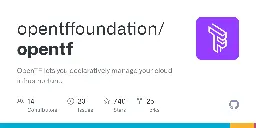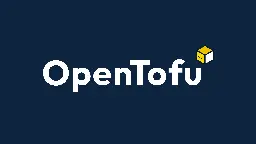Remind me of some quotes:
And once the storm is over, you won’t remember how you made it through, how you managed to survive. You won’t even be sure, whether the storm is really over. But one thing is certain. When you come out of the storm, you won’t be the same person who walked in. That’s what this storm’s all about.
No man ever steps in the same river twice, for it's not the same river and he's not the same man.
Recently, I came back home after 2.5 years of studying and working abroad. Home (family, friends, scene, etc.) didn't change much, but I definitely felt something off that it was hard to describe. I grew out of it, I suppose.
Reddit is already blocking some Proton VPN IPs...
If you're pursuing a MSc, your effort should be spent on the study itself, not on tinkering (e.g. I saw some recommended a Framework laptop). So my wholehearted recommendation is a Thinkpad + Fedora for maximum usability, stability, and durability. Thinkpad speakers are usually bad though. And Thinkpad is not particularly good for gaming, either.
This is actually not a good advice, from my experience. If we don't monitor, refactor, or improve the code, the software will rot, sooner or later. "Don't touch" doesn't mean we don't ever think about the code, but we make the conscious choice not to modify it.
This + org-mode are enough for me to switch to Emacs.
Also excited for this. I tried KDE before but I didn't find it easy to configure (too manually for a declarative guy like me). I like more the simplicity of Gnome.
It was VPN issue for me. Some IPs in Proton VPN doesn't work. When I tried a different IP or turned the IP off, I could access again.
Well, but most of the time I don't care enough to go in.
Better learn COBOL now.
Ehm... Elliot uses Gnome.
The different servers, having to remember other people's instances along with their username.
This is just like email, I see no problem here.
I think the problem is about the mindset and the onboarding experience. We've used too much proprietary products and prefer something easy and not too much diverge from the norms. Recently, I tried to advertise Mastodon and Lemmy to my non-techie friends, which are using X and Reddit. Some did try but gave up. They said they didn't understand the concept, and didn't want to bother with choosing an instance in the first place, because they didn't understand the federation concept. It's just hard to explain the benefits of the fediverse to non-techie people.
The type of people that the fediverse attracts are FOSS users.
I have the same observation as your view. Current fediverse communities are heavily towards tech. Some of my friends joined but gradually left because they had a few to no interactions or no interesting people in their interested areas to follow.
I learned the lesson: keep the hope low (so I don't get disappointed), and never preorder.
Unpopular opinion: just type "Massive Win". What's wrong with it?
Gitlab used to be cute, small, and innovative (as in open). But now it's too bloated. Gitlab CI is not well designed and half-baked.
That's interesting to know. Maybe that's why add-ons don't work in Firefox iOS or iPad OS.
Second. Up-to-date packages and stable at the same time.
Same. I gave up the first time due to tedious details and weird control. I played it again with some control tweak (can't remember what I changed) and tried to embrace the slow details, and completely loved the story.
+1 for Kagi. $9/month is well worth every dime, considering that searching is one of my main workflows. Google search results nowadays are full of rubbish—ads and SEO-boost junk articles.
Default Brave blocks ads more aggressively than default Firefox. Of course you can achieve that with Firefox + uBlock Origin, but add-ons are not available on iOS and iPad OS.
That's just my experience. I still use Firefox + Firefox Focus BTW. To block more aggressively, I also use VPN + Adguard Home.
The uploading functionality—either a file or multiple files—is broken. It's stuck on "Waiting to upload" forever. And files are not guaranteed to be uploaded.
Seriously, don't people at Proton do testing the Android app? I have to switch to use Firefox for using the web app. It's inconvenient, but that's the only way that uploading to Proton Drive in mobile works.
What's the best way to quickly raise this issue to Proton: [Proton Support][1] or [Customer Feedback][2]?
[1]: https://proton.me/support/contact [2]: https://protonmail.uservoice.com/
LanguageTool is a free grammar checker and paraphraser for English, Spanish, and 30 other languages. Instantly check your text for grammar and style mistakes.

I'm thinking of either self-hosting LanguageTool or buying the premium version. What's the pros and cons of each decision?
I'm comfortable in self-hosting stuff. Nevertheless, I don't want to have much hassle building the language rules, grammars, and dictionaries. Premium pricing seems tempting (much affordable than Grammarly), but I do want to own my data and privacy!
For more context, I write in English most of the time. I don't care about other languages.
I'm looking for a solution that satisfies:
- Open source, or partially open source.
- Have good privacy practice. Even better if I can get away from 5 Eyes or 9 Eyes.
- Have an application for Android that supports auto-sync.
Self-hosting is also an option, but I would prefer a lightweight setup. I checked Immich requirements, but it requires 2 CPU cores and 4 GB memory, which costs way too much if I want to host it on my AWS.
OpenTofu is also officially under the Linux Foundation.
You will invoke tofu instead of terraform.
OpenTofu lets you declaratively manage your cloud infrastructure. - GitHub - opentofu/opentofu: OpenTofu lets you declaratively manage your cloud infrastructure.

For context: https://opentf.org/
I want to polish my Ruby and functional programming skills at the same time. And I'm looking for a book that walks through functional programming concepts with code examples in Ruby. I tried searching but no results come up so far. Do you have any recommened materials out there?
PS: I want the code is written specifically in Ruby. I'm not looking for code written in another language (e.g. Scala, Clojure, Lisp).
Pulumi's open source infrastructure as code SDK enables you to create, deploy, and manage infrastructure on any cloud, using your favorite languages.

Infrastructure as Code with your favourite programming language!
Check this out if you're hosting your code on Gitlab and don't want to hustle with AWS services or pay for Terraform cloud.

